Photos: Super Blood Wolf Moon Eclipse Stuns Viewers
Gorgeous lunar show
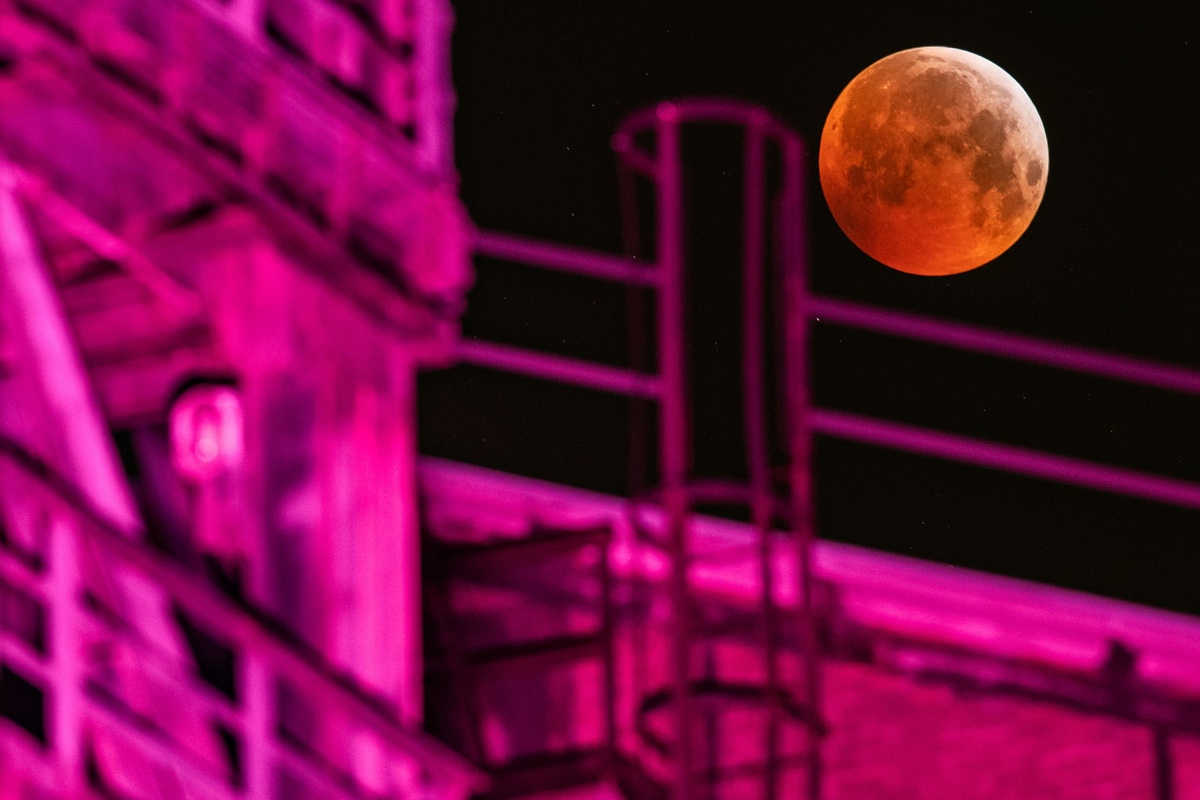
The super blood wolf moon lunar eclipse (yes, a mouthful) graced the skies late-night on Jan. 20, 2019, as our lone satellite began its trek into Earth's outer shadow or penumbra, at 9:36 p.m. EST (6:36 p.m. PST). At 10:34 p.m. EST (7:34 p.m. PST), the partial phase of the eclipse began as the moon inched into the umbra, the darkest part of Earth's shadow. At that point, a reddish orb of darkness appeared to creep across the moon's face. The pinnacle of the show, the total eclipse, happened between 11:41 p.m. EST (8:41 p.m. PST) and 12:43 p.m. EST (9:43 p.m. PST), when Earth's umbra had entirely engulfed the moon. Here's a look at the gorgeous eclipse, seen by millions across North and South America, parts of western Europe and north Africa.
Here, Marcel Kusch captures this image in Duisburg, Germany, showing the super blood moon eclipse above an industrial plant.
Above industrial park
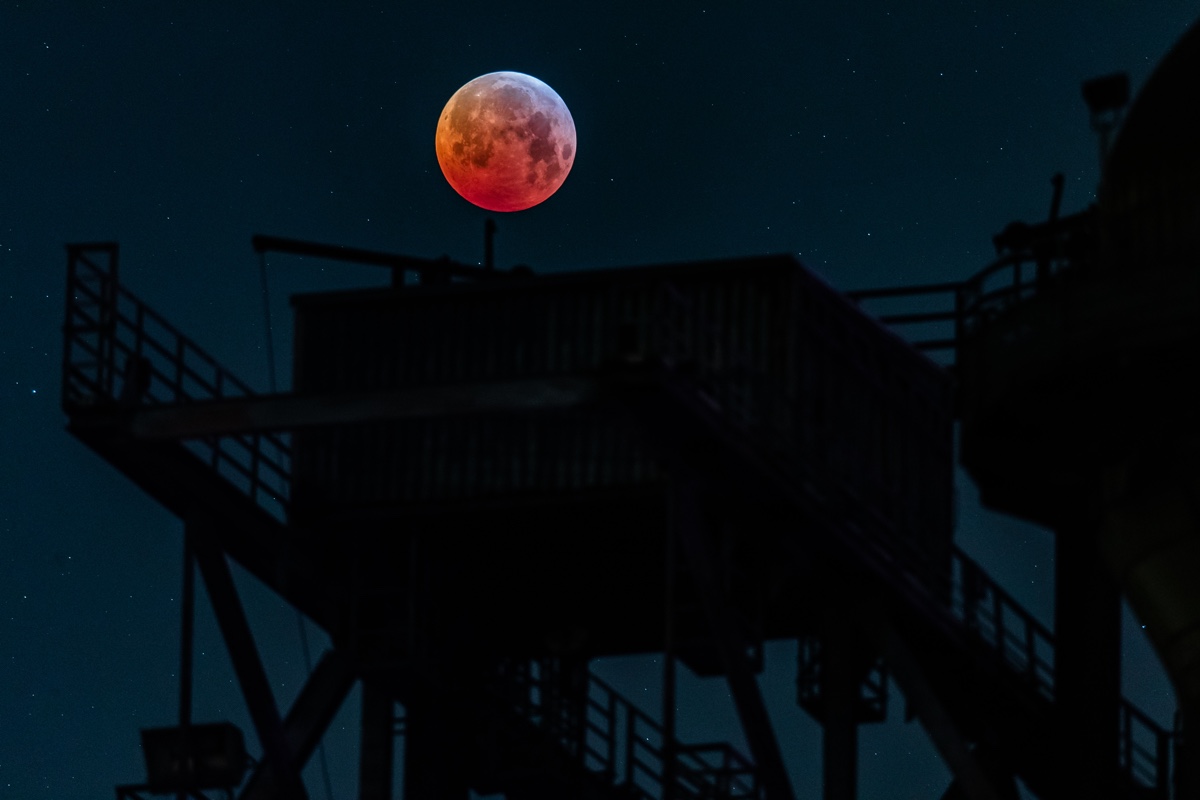
The eclipsed supermoon can be seen above an industrial plant in the Duisburg Landscape Park, in Duisburg in western Germany on Jan. 20, 2019.
Griffith livestream
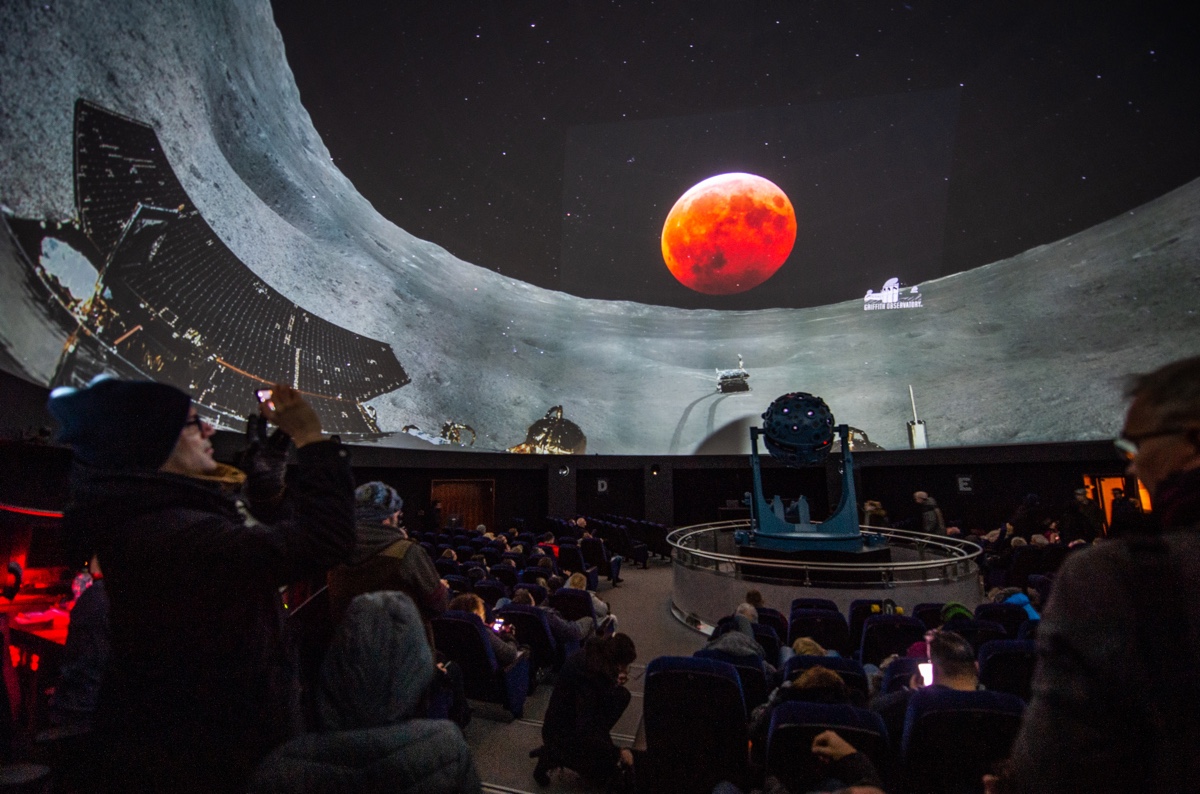
In a planetarium, the livestream of the total lunar eclipse of the blood wolf moon from the Griffith Observatory in Los Angeles was superimposed onto a 360-degree panorama photo of the Chinese space vehicle "Jadehase," on Jan. 21, 2019.
Eclipsing NYC
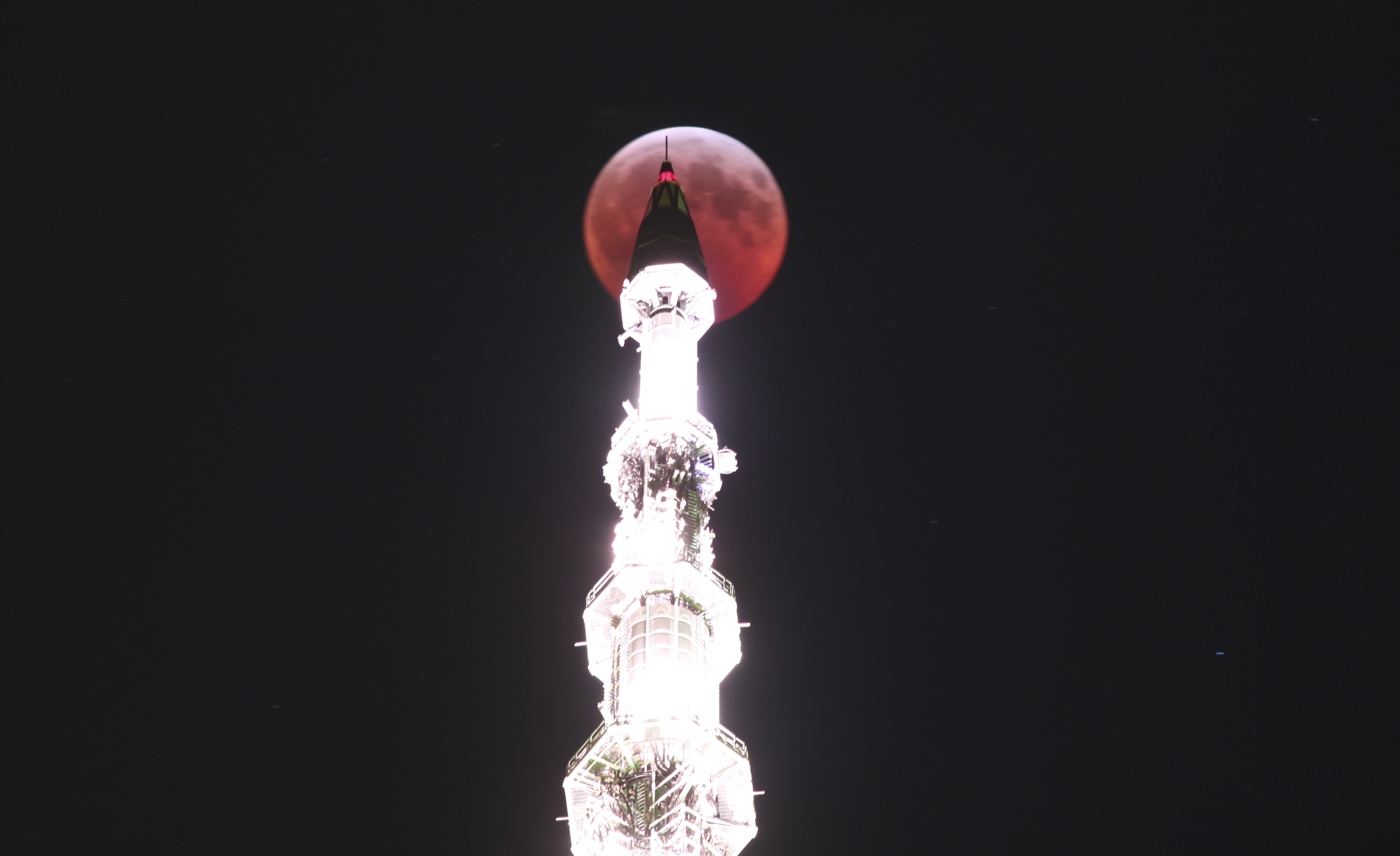
Even the city lights can't outshine the eclipsed supermen. Here, the Super Wolf Blood Moon lunar eclipse passes over One World Trade Center on Jan. 21, 2019, in New York City.
Frankfurt eclipsed
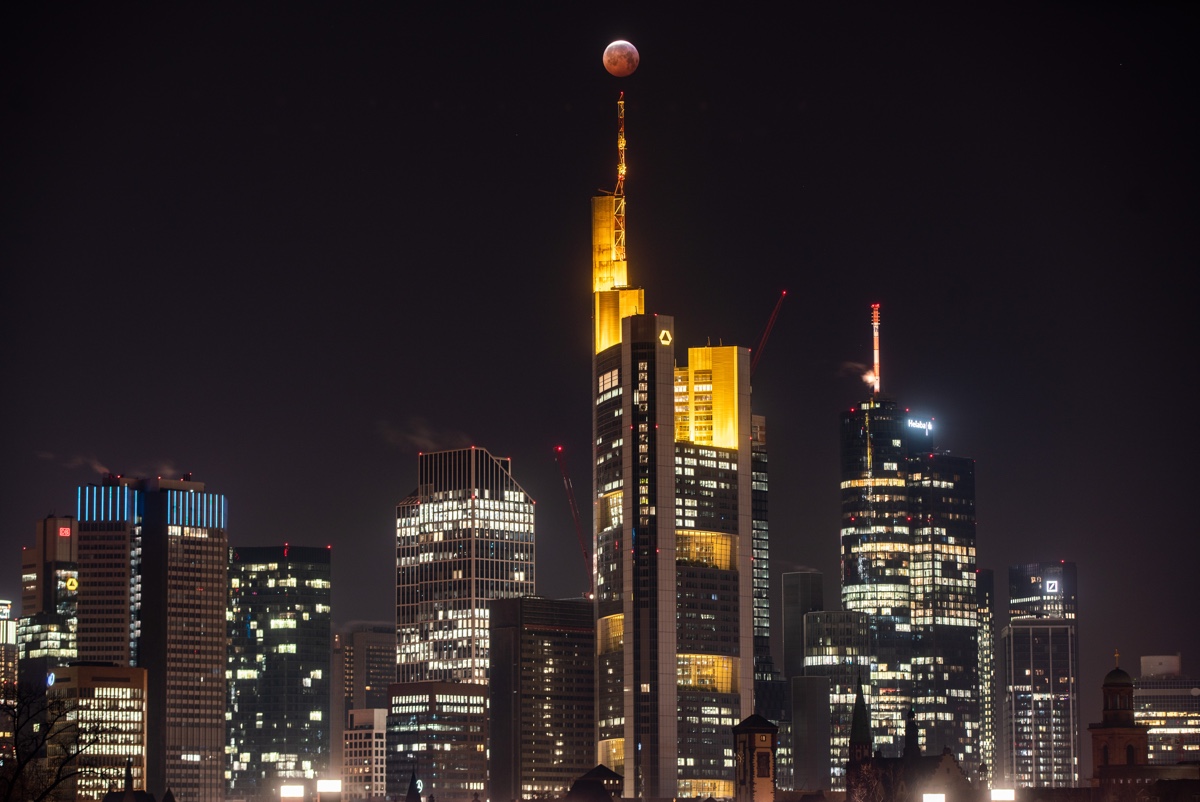
Another city wowed by the super wolf blood moon lunar eclipse. The eclipsed moon rises above the Frankfurt, Germany skyscrapers and the Commerbank headquarters, while it steps into the shadow of the Earth.
Monumental moon
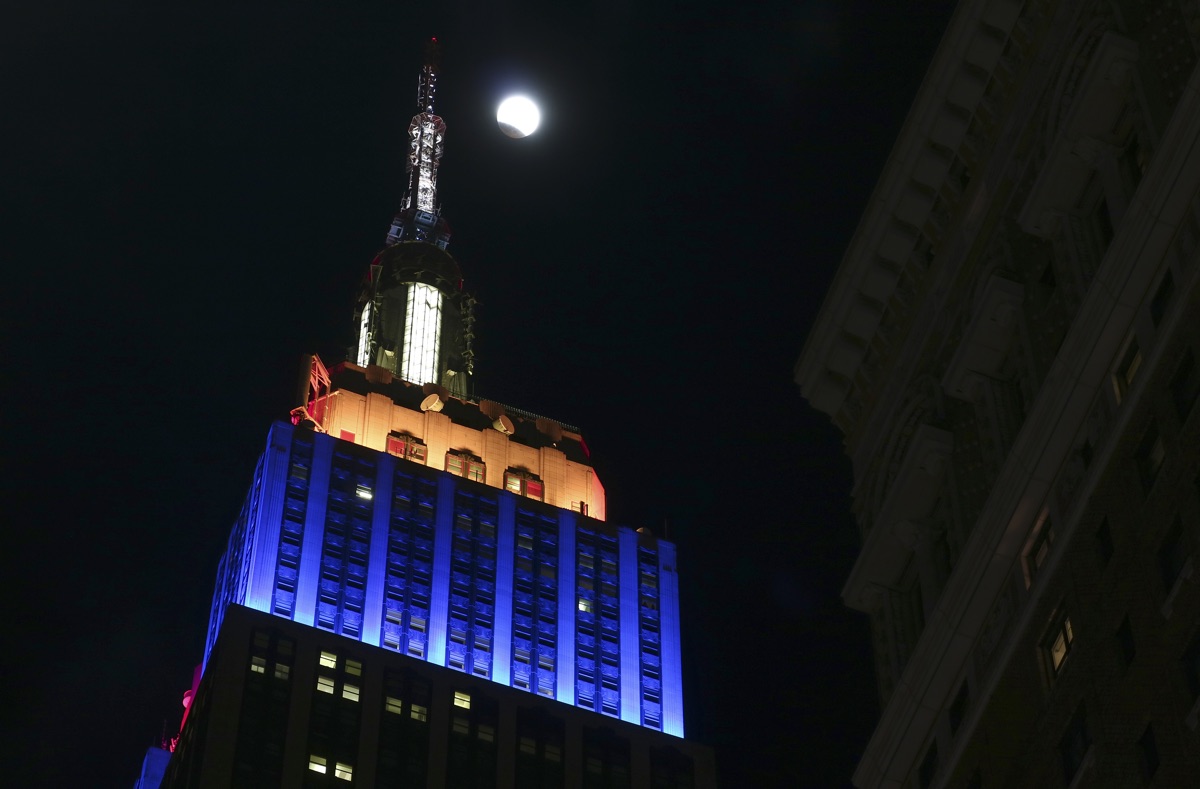
The Super Wolf Blood Moon lunar eclipse begins as the moon rises behind the Empire State Building on Jan. 20, 2019, in New York City. The moon has just entered the outer part, or penumbra, of Earth's shadow, and has yet to take on the reddish hue of the total eclipse.
Get the world’s most fascinating discoveries delivered straight to your inbox.
Equestrian toy?
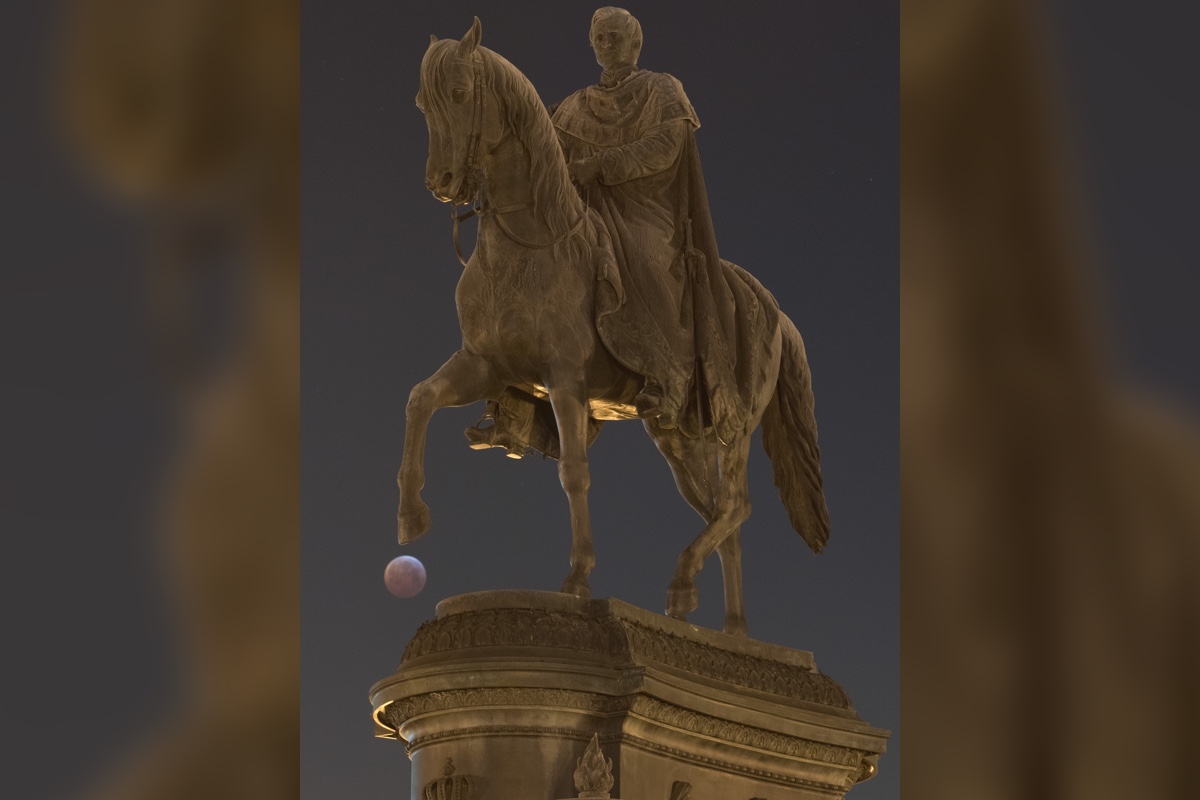
The equestrian statue of the Saxon king Johann, in Saxon, Dresden in Germany, seems to have a glowing accessory, as the moon rises behind it. The moon, at this point, had just begun to step into the core of Earth's shadow on Jan. 21, 2019.
Lucky shot
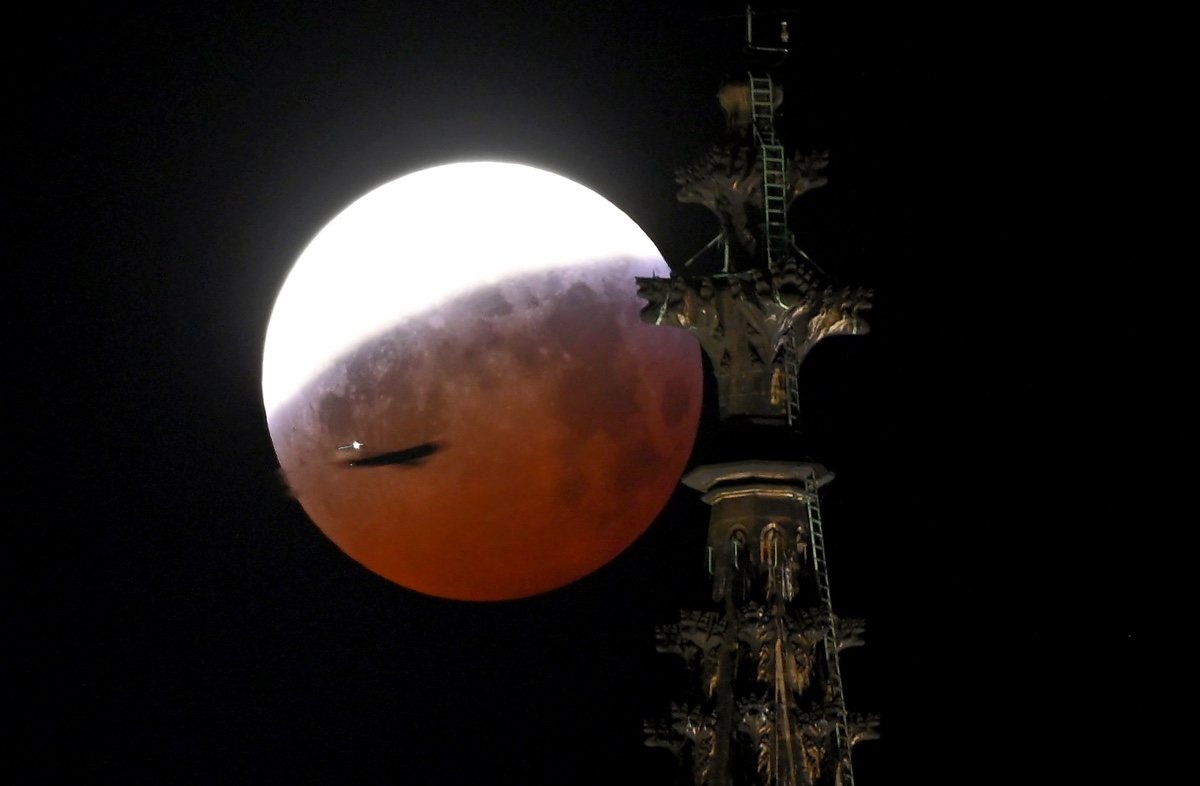
Photographer Henning Kaiser captured this amazing view of the partly eclipsed blood moon rising behind a tower of the Cologne Cathedral in Cologne, North Rhine-Westphalia, Germany, just as an airplane passes by, on Jan. 21, 2019.
Skywatchers
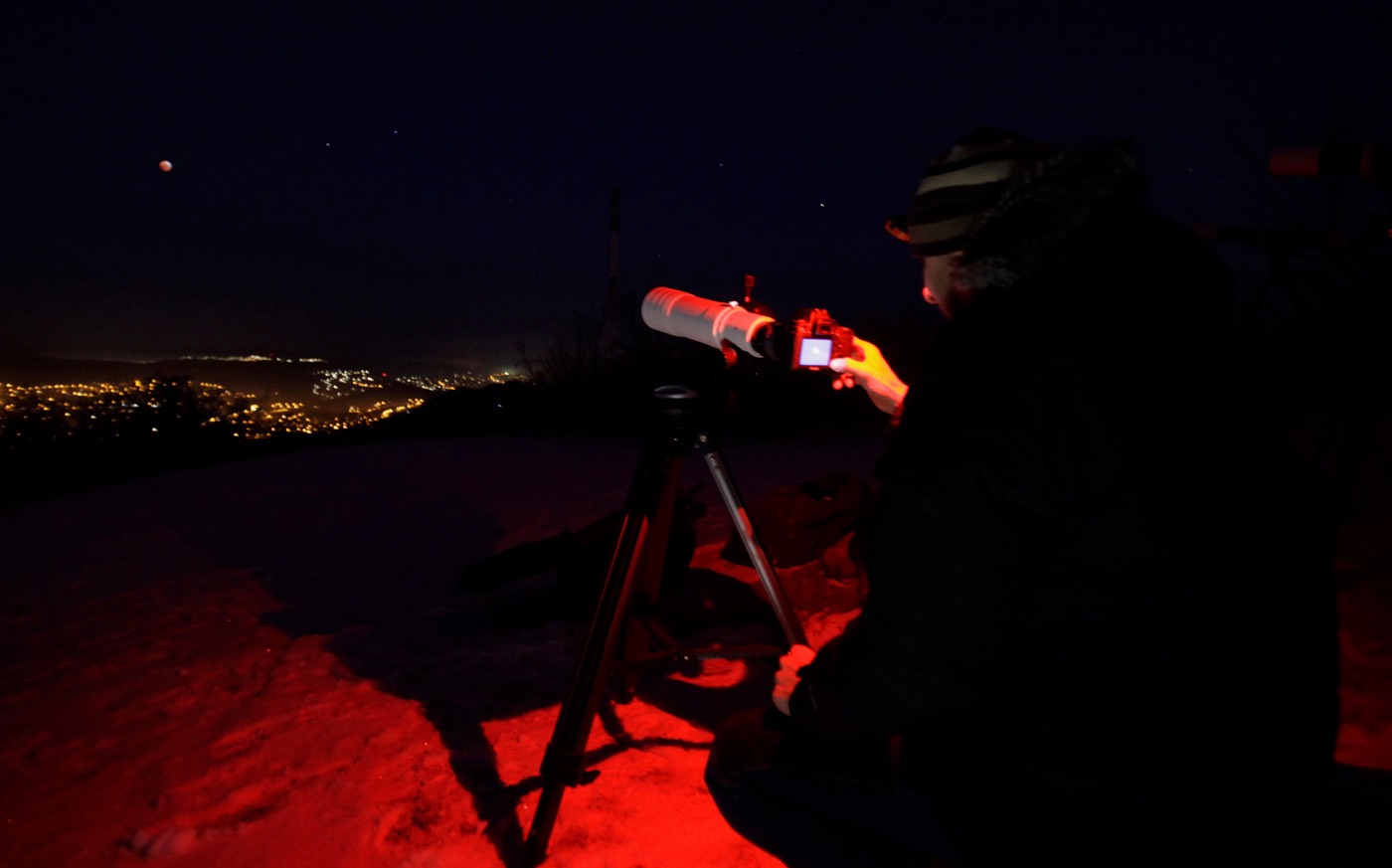
Amateur astronomers observe and take pictures of the super blood moon lunar eclipse at Harmashatarhegy above the Hungarian capital Budapest on Jan. 21, 2019.
Oversized eclipse
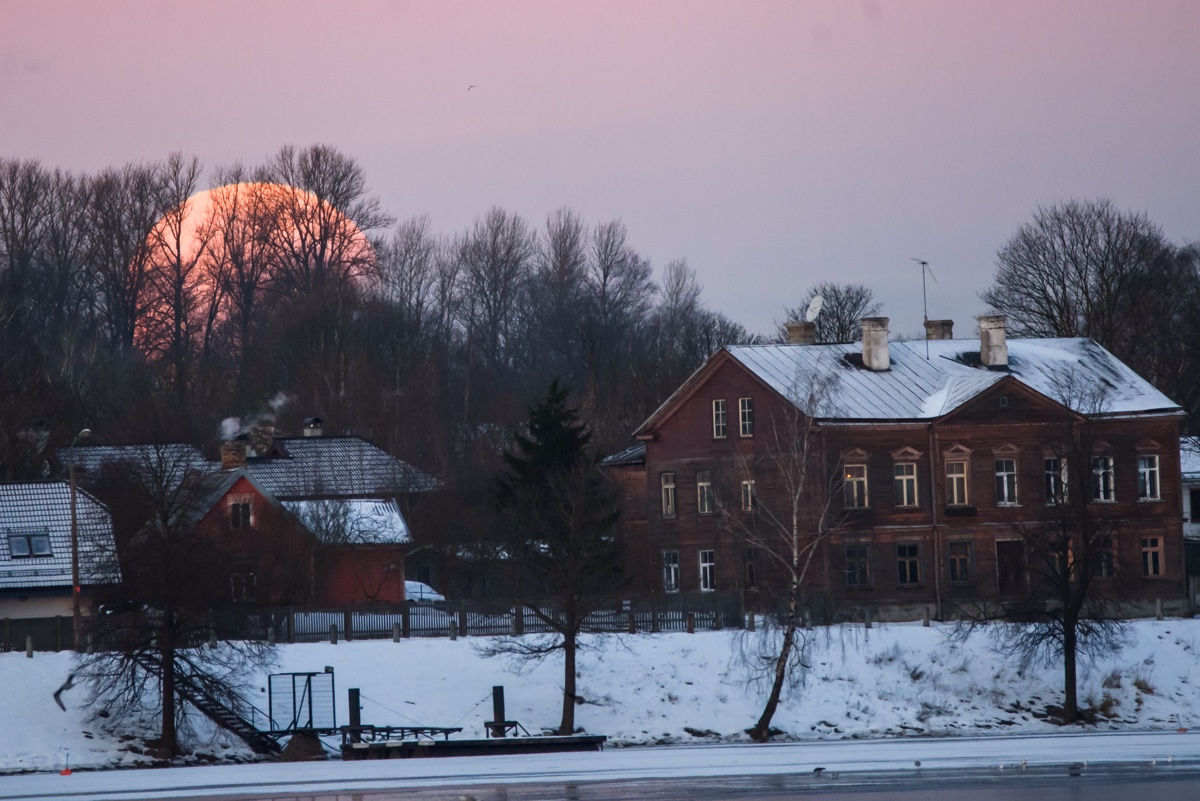
The total lunar eclipse as seen from Latvia on Jan. 21, 2019.
New Jersey moon
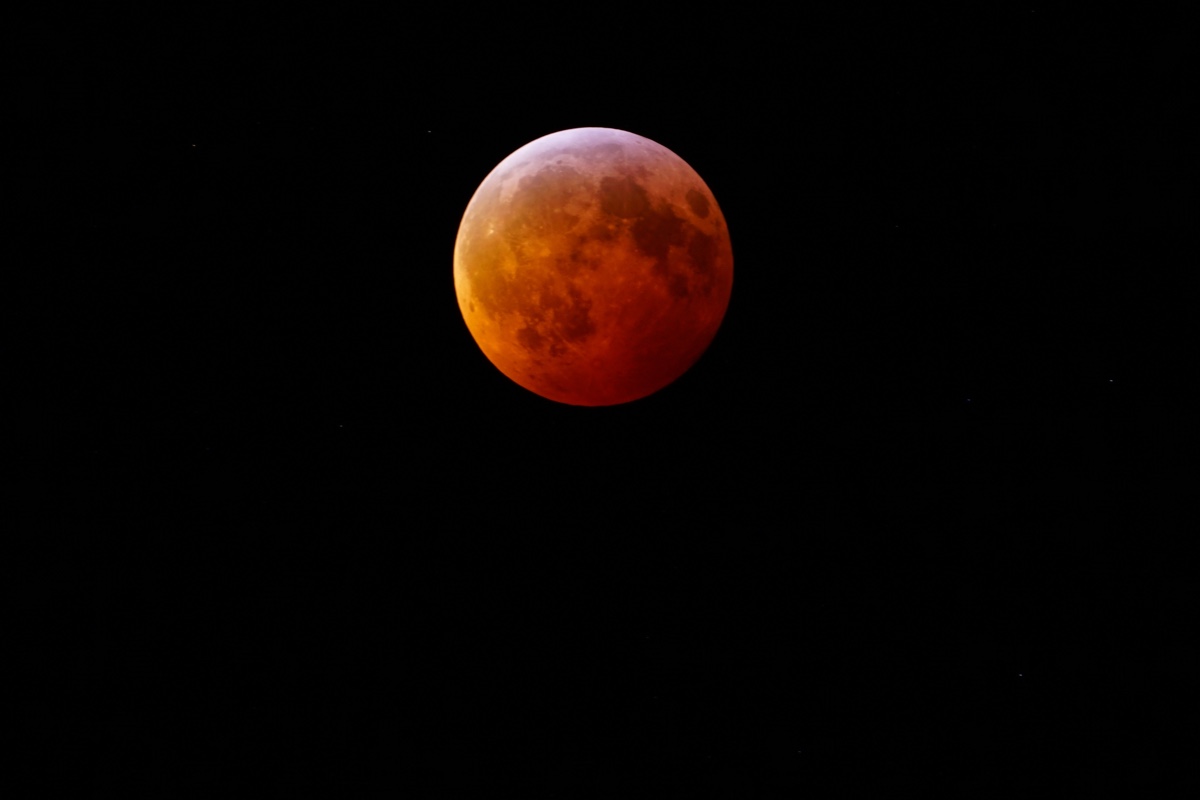
The super blood wolf moon eclipse seen from New Jersey. Even though Earth's shadow blocks out the sun's rays from directly hitting the moon, some of our home star's light bends around the edge of Earth and reflects onto the moon. [Read more about why the moon looks red during a lunar eclipse]
Jeanna Bryner is managing editor of Scientific American. Previously she was editor in chief of Live Science and, prior to that, an editor at Scholastic's Science World magazine. Bryner has an English degree from Salisbury University, a master's degree in biogeochemistry and environmental sciences from the University of Maryland and a graduate science journalism degree from New York University. She has worked as a biologist in Florida, where she monitored wetlands and did field surveys for endangered species, including the gorgeous Florida Scrub Jay. She also received an ocean sciences journalism fellowship from the Woods Hole Oceanographic Institution. She is a firm believer that science is for everyone and that just about everything can be viewed through the lens of science.
 Live Science Plus
Live Science Plus





